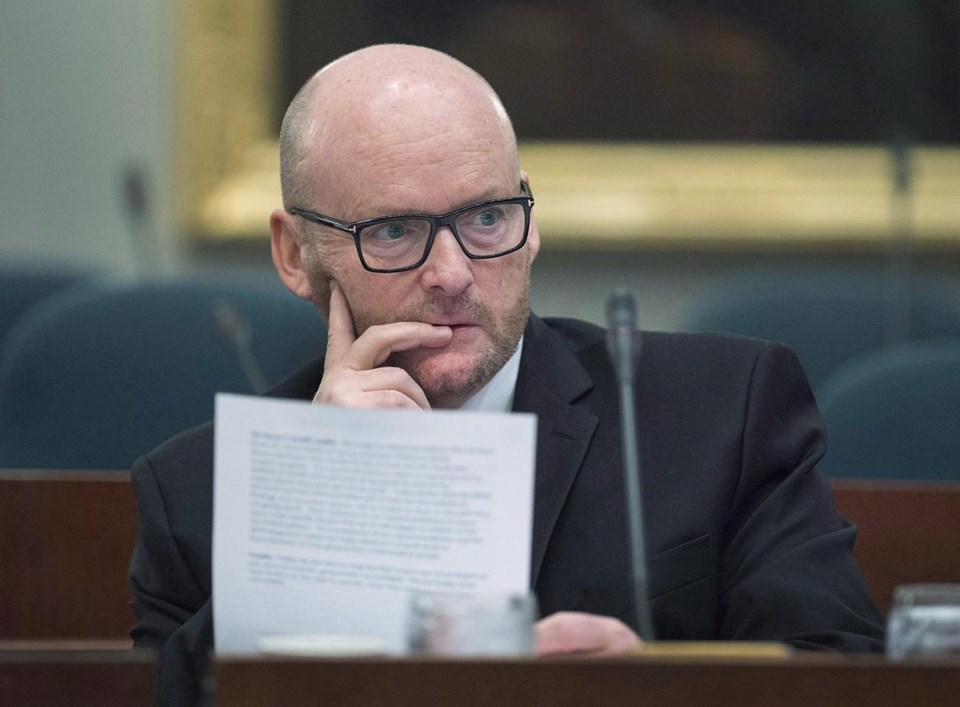VICTORIA — A report by British Columbia's auditor general says almost half of the government's ministries were affected by some type of fraud between 2021 and 2022, most commonly theft.
Michael Pickup said Tuesday the results of a questionnaire sent to ministries last September suggest not all are following the same approach for managing risk or they don't have a full understanding of the government-wide framework for managing fraud.
He said the findings are important because fraud attempts have become more sophisticated over time.
"The purpose of the questionnaire is to not go looking for fraud. The purpose is to get a reading on the public sector's readiness to manage the risk of fraud," he said at a news conference.
"What we want to know, and bring to the attention of MLAs, is whether these organizations indicate in their questionnaire that they have all the safeguards in place to prevent, detect and respond to fraud."
The frequency of fraud isn't matched by perceptions about the risk, Pickup said.
The questionnaire, which was answered by 22 of the 23 government ministries, found that 45 per cent were affected by at least one type of fraud.
The most common cases were physical theft at 36 per cent, but 95 per cent of the ministries described their vulnerability to theft as low.
Only half of the ministries said they needed to be highly vigilant against fraud.
While the comptroller general is responsible for providing ministries with guidance and tools around fraud prevention and co-ordinating an annual government-wide risk assessment, it's up to individual ministries to implement internal controls to prevent and detect fraud, the report says.
Half the ministries said they didn't have a risk-assessment process, Pickup said.
All ministries but one said they had one or more people responsible for monitoring controls and reporting signs of non-compliance and fraud.
Four of the ministries reported not having policies and procedures to respond to potential fraud when it is detected.
Pickup said the report will be reviewed by the legislature's public accounts committee and there are a number of points to consider, such as why there are inconsistencies between ministries and why only half say they need to be highly vigilant to fraud.
He said talking about potential fraud is important to help prevent it.
"I would suggest, the more we talk about fraud, the more you see strong responses, like high percentages of the ministries talking about having the policies in place ... the likelihood of fraud happening becomes lower."
In March, Pickup released the results of a similar survey of 23 public bodies — including the B.C. Lottery Corp., the University of British Columbia and the Insurance Corporation of B.C. — which showed more than half had been the victim of some form of fraud.
This report by The Canadian Press was first published May 2, 2023.
The Canadian Press



